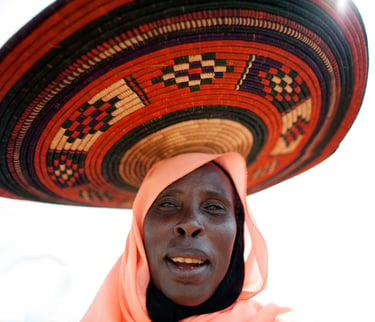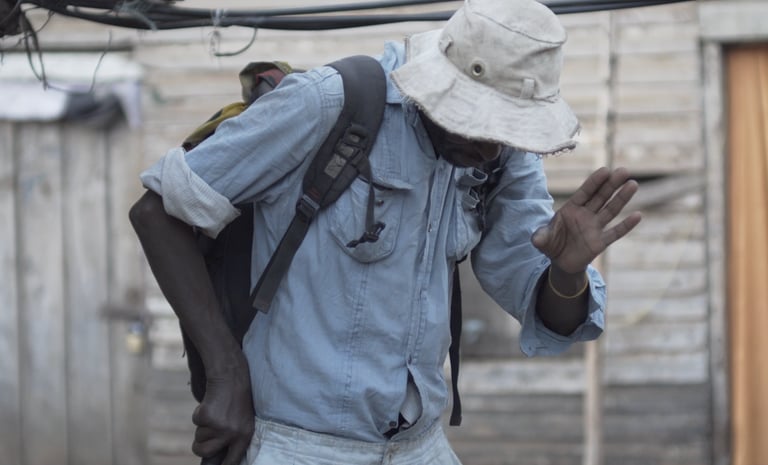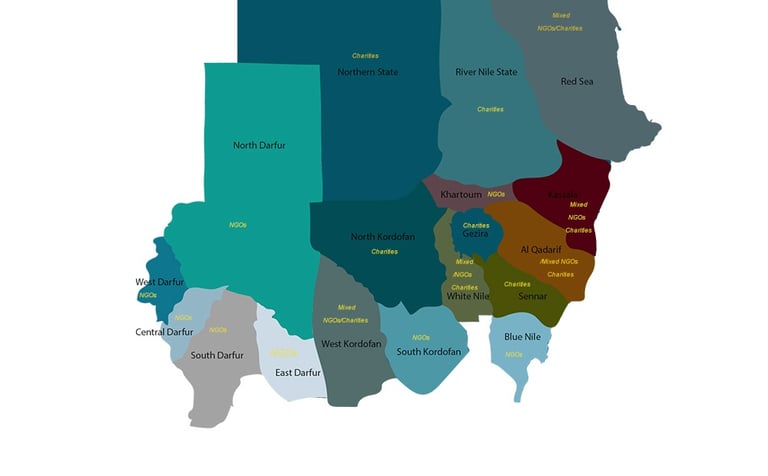Sudan Timelines
A chronology of key events:
1881 - Revolt against the Ottoman-Egyptian administration.
1899-1955 - Sudan passes into joint British-Egyptian rule.
1956 - Sudan becomes independent.
1958 - General Ibrahim Abboud leads military coup against the civilian government elected earlier in the year
1962 - Civil war begins in the south, led by the Anya Nya movement.
1964 - The "October Revolution" overthrows Abboud and an Islamist-led government is established
1969 - Jaafar Numeiri leads military coup.
1971 - Sudanese Communist Party leaders executed after short-lived coup against Mr Numeiri.
1972 - Under the Addis Ababa peace agreement between the government and the Anya Nya, the south becomes a self-governing region.
1978 - Oil discovered in Bentiu in southern Sudan.
1983 - Civil war breaks out again in the south involving government forces and the Sudan People's Liberation Movement (SPLM), led by John Garang.
Islamic law imposed
1983 - President Numeiri declares the introduction of Sharia Islamic law.
1985 - After widespread popular unrest Mr Numeiri is deposed by a Transitional Military Council.
1986 - Coalition government formed after elections, with Sadiq al-Mahdi as prime minister.
1989 - National Salvation Revolution takes over in military coup.
1993 - General Omar al-Bashir is appointed president.
US strike
1995 - Egyptian President Mubarak accuses Sudan of being involved in attempt to assassinate him in Addis Ababa.
1998 - US launches missile attack on a pharmaceutical plant in Khartoum, alleging that it was making materials for chemical weapons.
1998 - New constitution endorsed by over 96% of voters in referendum.
1999 - President Bashir dissolves the National Assembly and declares a state of emergency following a power struggle with parliamentary speaker, Hassan al-Turabi.
1999 - Sudan begins to export oil.
Southern peace, Darfur crisis
2002 - Machakos Protocol talks in Kenya lead to breakthrough agreement with southern rebels on ending civil war. Provide for south to seek self-determination after six years.
2004 January - Army moves to quell rebel uprising in western region of Darfur; hundreds of thousands of refugees flee to neighbouring Chad.
Pro-government Arab Janjaweed militias carry out systematic killings of non-Arab villagers in Darfur.
2004 March - Army officers and opposition politicians, including Islamist leader Hassan al-Turabi, are detained over an alleged coup plot.
2004 September - US Secretary of State Colin Powell describes Darfur killings as genocide.
2005 January - Government and southern rebels sign a peace deal.
2005 March - UN Security Council authorises sanctions against those who violate ceasefire in Darfur. Council also votes to refer those accused of war crimes in Darfur to International Criminal Court.
2005 June - Government and exiled opposition grouping - National Democratic Alliance (NDA) - sign reconciliation deal allowing NDA into power-sharing administration.
President Bashir frees Islamist leader Hassan al-Turabi.
2005 July - Former southern rebel leader John Garang is sworn in as first vice-president, new constitution gives large degree of autonomy to south.
2005 August - John Garang killed in plane crash, succeeded by Salva Kiir.
2006 May - Khartoum government and the main rebel faction in Darfur, the Sudan Liberation Movement, sign a peace accord. Two smaller rebel groups reject the deal. Fighting continues.
2007 July - UN Security Council approves a resolution authorising a 26,000-strong force for Darfur. Sudan says it will co-operate with the United Nations-African Union Mission in Darfur (Unamid).
2008 May - Tension increases between Sudan and Chad after Darfur rebel group mounts raid on Omdurman, Khartoum's twin city across the Nile. Sudan accuses Chad of involvement and breaks off diplomatic relations.
Intense fighting breaks out between northern and southern forces in disputed oil-rich town of Abyei. President Bashir and southern leader Salva Kiir agree to seek international arbitration to resolve dispute over Abyei.
Bashir arrest warrant
2009 March - The International Criminal Court in The Hague issues an arrest warrant for President Bashir on charges of war crimes and crimes against humanity in Darfur.
2009 July - North and south Sudan say they accept ruling by arbitration court in The Hague shrinking disputed Abyei region and placing the major Heglig oil field in the north.
2009 December - Leaders of North and South reach deal on terms of referendum on independence due in South by 2011.
Darfur deal
2010 Feb-March - The Justice and Equality Movement (Jem) main Darfur rebel movement signs a peace accord with the government, prompting President Bashir to declare the Darfur war over. But failure to agree specifics and continuing clashes with smaller rebel groups endanger the deal.
2010 April - President Bashir gains new term in first contested presidential polls since 1986.
2010 July - International Criminal Court issues second arrest warrant for President al-Bashir - this time on charges of genocide.
2010 August - Mr Bashir tests ICC arrest warrant by visiting Kenya, an ICC signatory. The Kenyan government refuses to enforce the warrant. He later ignores South African court order not to leave country in 2015.
South becomes independent
2011 July - South Sudan gains independence after January popular vote, but some border areas remain in dispute.
2011 December - Government forces kill key Darfur rebel leader Khalil Ibrahim.
2012 May - Sudan pledges to pull its troops out of the border region of Abyei, which is also claimed by South Sudan, as bilateral peace talks resume.
2012 June - Protests in Khartoum against austerity measures after government cuts fuel and other subsidies in response to the drop in oil revenue after the independence of South Sudan.
2013 March - Sudan and South Sudan agree to resume pumping oil, ending a shutdown caused by a dispute over fees more than a year earlier, and to withdraw troops from their borders to create a demilitarised zone.
2013 September - Another wave of demonstrations over subsidies cuts. Scores of people die in clashes.
Ruling party splits
2013 October - Dissident members of ruling National Congress Party threaten split to reach out to secularists and leftists.
2013 December - President Bashir drops long-time ally and first vice president Ali Osman Taha from the cabinet in a major shake-up.
2014 May - A court in Khartoum prompts an international outcry by sentencing a pregnant woman born to a Muslim father but raised as a Christian to death for apostasy after failing to recant her Christianity.
2014 December - The chief prosecutor of the International Criminal Court halts investigations into war crimes in Darfur for lack of support from the UN Security Council.
2015 April - President Bashir is re-elected for another five year term. He wins nearly 95 percent of the vote in a poll marked by low turnout and boycotted by most opposition parties.
2016 November-December - Street and stay-at-home protests at IMF-prompted price hikes for basic goods. Government disperses protests, arrests opposition politicians, bans media coverage.
2017 October - US announces partial lifting of sanctions.
2018 January - Protests against bread price rises after government removed subsidies. These escalate into mass protests in December.
Fall of Bashir
2019 February - President Bashir declares state of emergency and sacks cabinet and regional governors in bid to end weeks of protests against his rule, in which up to 40 people died.
2019 April - Military topples President Bashir in a coup, begins talks with opposition on transition to democracy.
2019 September - A new government takes office under Prime Minister Abdalla Hamdok as part of a three-year power-sharing agreement between the military, civilian representatives and protest groups.
Data allows organizations to measure
Data will help you to improve quality of life for peoples you support: Improving quality is first and foremost among the reasons why organizations should be using data. By allowing you to measure and take action, an effective data system can enable your organization to improve the quality of people’s lives.






